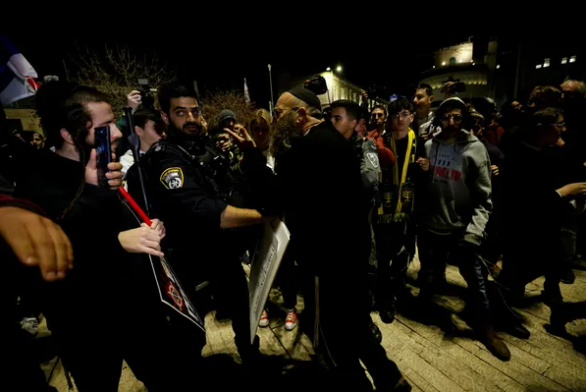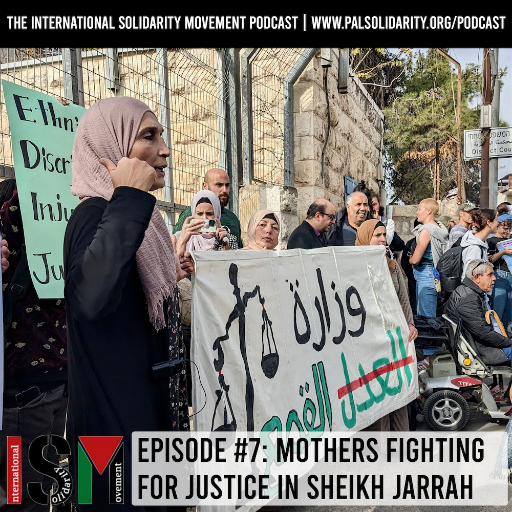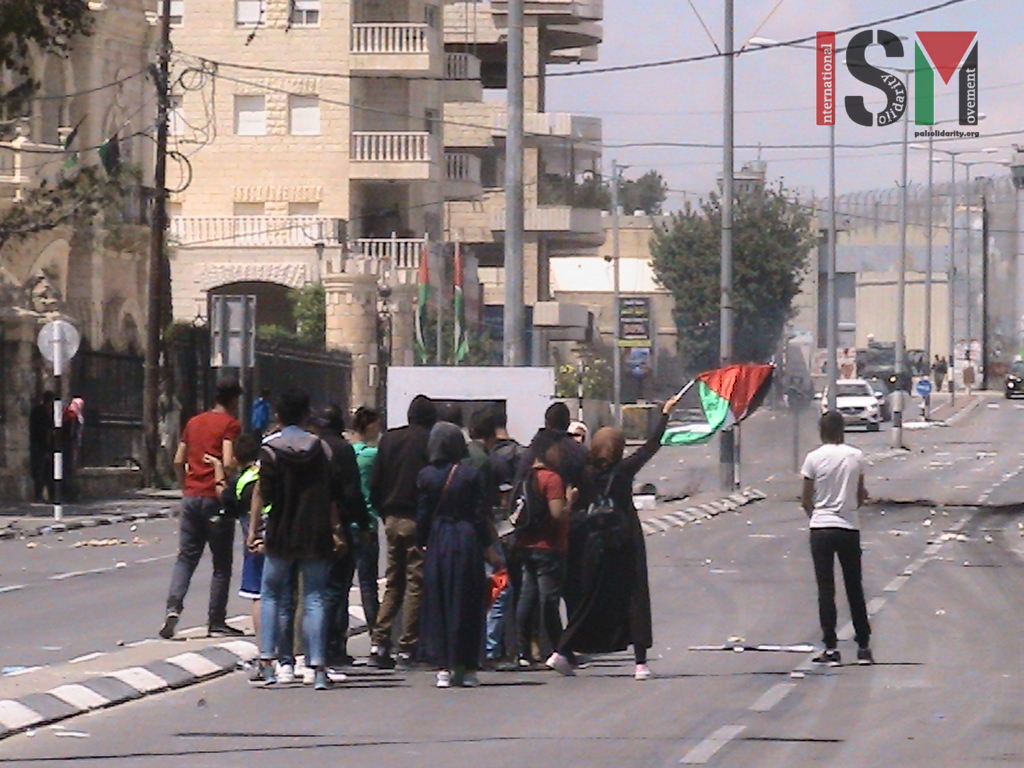Tag: Sheikh Jarrah
-
Far Right Settler March Demanding Control of Al Aqsa Mosque Disbanded for Inciting Violence
8 December 2023 | International Solidarity Movement | Occupied East Jerusalem Marking the first night of Hanukkah, on December 7, around 150 ultra-nationalist, Kahane terrorist linked extremist settlers demanding “full Jewish control” of Al Aqsa Mosque shouted racist abuse and waved banners of violent incitement against Al Aqsa Mosque. The violent-extremist group was granted authorization…
-
The International Solidarity Movement podcast episode seven: Mothers fighting for Justice in Sheikh Jarrah
In this episode, we share an interview with Um Ramadan. We met her at a demonstration outside the district court in Jerusalem in December 2022. Alongside other mothers, she is protesting her son’s imprisonment. In this moving interview, she talks about the conditions her son is kept in and how mother’s are organising to support…
-
Bethlehem protests the US embassy relocation
On the 14th May 2017, the day the new US embassy to Israel was due to open in Jerusalem, protests were held across Palestine. In Bethlehem, hundreds of children, women and men marched from Nisan Square to the gate in the apartheid wall separating them from Jerusalem. This unarmed protest was immediately met by brutal…



